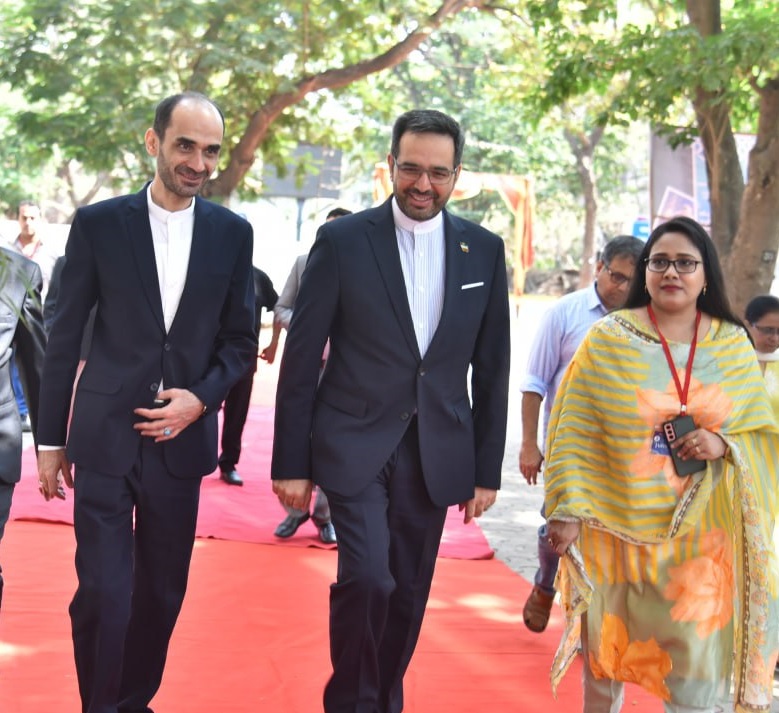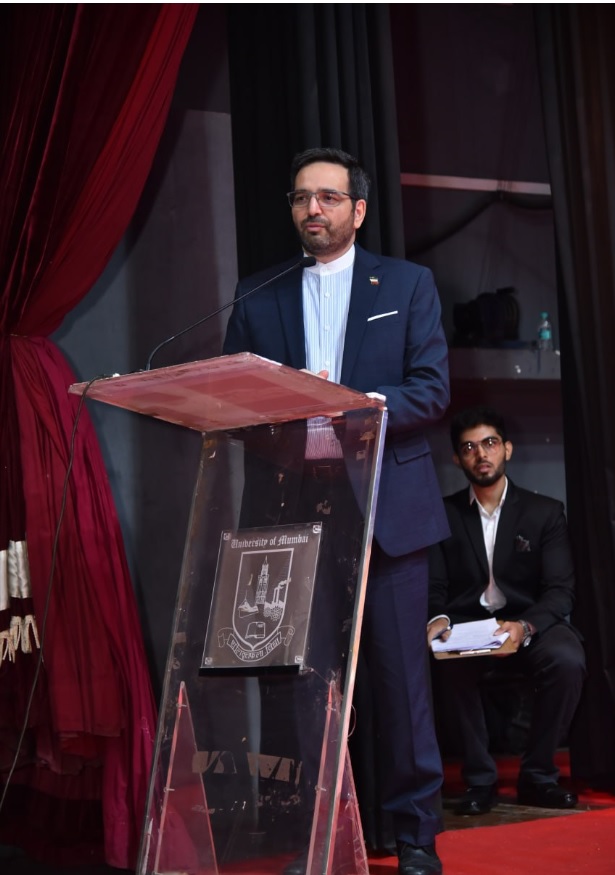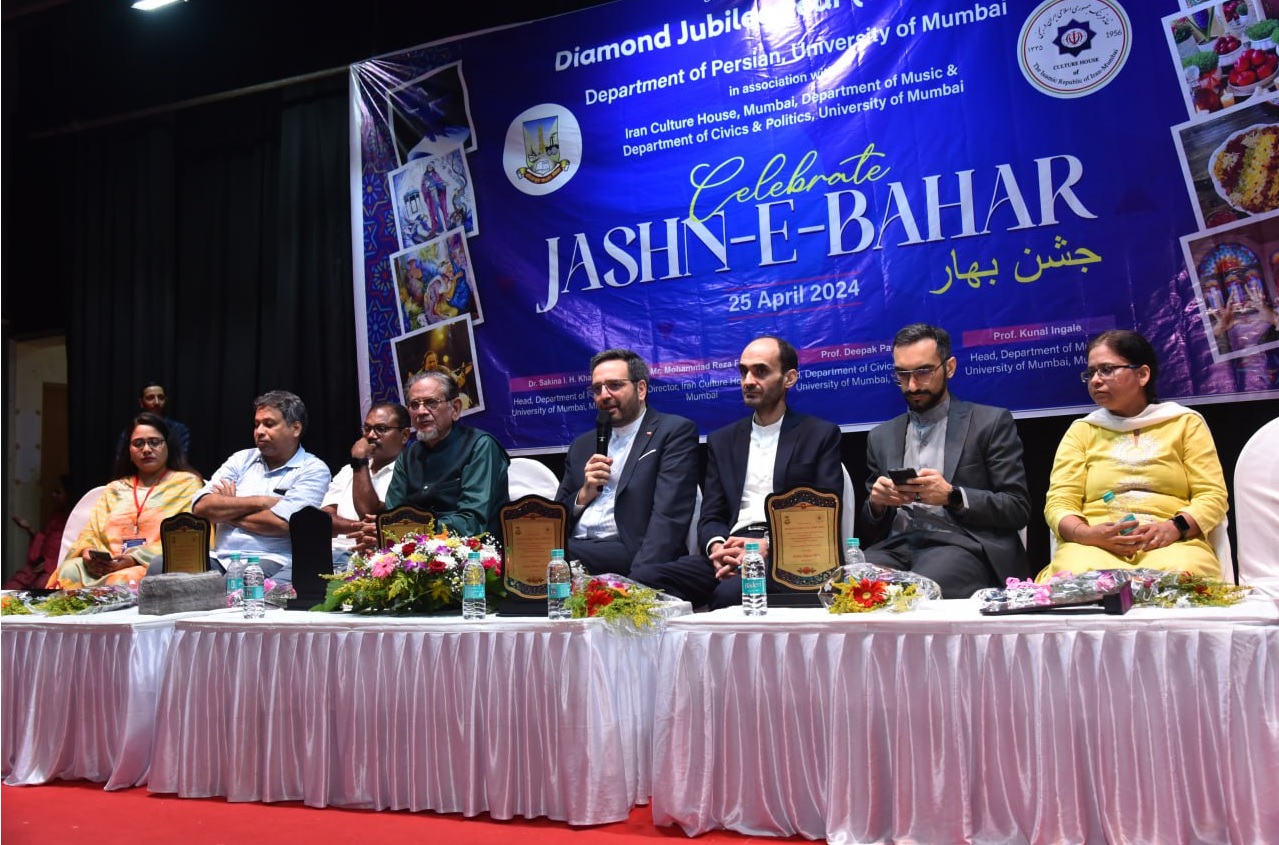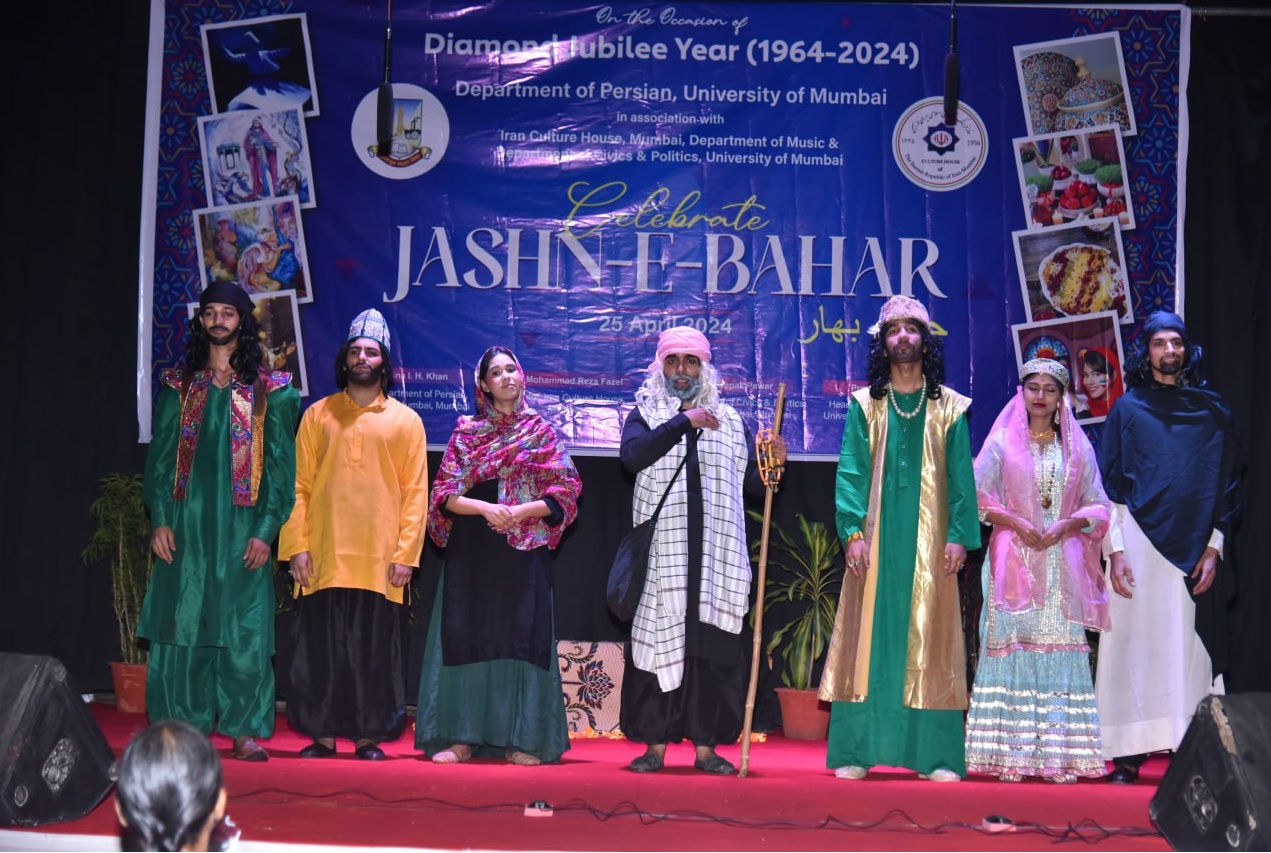Celebrating Nowruz and Cultural Exchange: Highlights from the Spring Festival Ceremony
On April 26 2024 the Culture House of the Islamic Republic of Iran in Mumbai in collaboration with the Department of Persian Language and the Department of Political Science and Humanities of the University of Mumbai organized a vibrant event to mark the arrival of Nowruz and the spring season.
The "Spring Festival" (Jashn-e Bahar) program not only celebrated Nowruz as the beginning of the spring solar year but also commemorated the 60th anniversary of the establishment of the Persian language department at the University of Mombay. The event witnessed a significant turnout, with professors, students, and enthusiasts of Persian language and literature joining in.

The presence of Dr. Rezaei Eskandari, Acting Consul General of the Islamic Republic of Iran to Mumbai, added a distinguished touch to the occasion. Dr. Eskandari highlighted Nowruz's significance as a symbol of vitality, tracing its roots across Central Asia, Afghanistan, and Iran. He also underscored the historical importance of Nowruz in India, mentioning its recognition as an official holiday during the reigns of prominent Indian kings like Akbar, Babur, and Humayun.

Dr. Sakineh Khan, the head of the Persian language department, expressed gratitude for the support from the representatives of the Islamic Republic of Iran and emphasized the importance of continued collaboration with the Persian language department of the University of Mumbai.
The program featured an enlightening session by Dr. Azami, a distinguished poet, researcher, and professor of Urdu and Persian languages. Dr. Azami discussed the influence of Persian language on various native languages of the Indian subcontinent, including Urdu, Marathi, Gujarati, and Bhojpuri. He highlighted the significant role of Persian in historical works and literature, pointing out notable poets like Mirza Ghalib, who incorporated Persian words into their Urdu poetry.
Further, heads of various departments including Mr. Deepak Pawar, Mr. Manish Karne, and Mrs. Manisha Karne expressed satisfaction with the ceremony, acknowledging the efforts of everyone involved.
An interactive session with Dr. Eskandari provided insights into scientific, cultural, political, and strategic matters. Dr. Eskandari emphasized the potential for commercial and economic cooperation between Iran and India, as well as cultural exchanges. He highlighted ongoing efforts to enhance scientific cooperation through initiatives like scholarships, student, and professor exchanges, and language promotion in universities.

Dr. Eskandari also discussed potential areas of bilateral cooperation, including the development of Chabahar port and the International North-South Transport Corridor. He emphasized the importance of people-to-people interactions and announced Iran's visa-free entry for Indian nationals for up to 15 days.
In addressing questions about the Middle East and Gaza, Dr. Eskandari highlighted India's historical support for the aspirations of the Palestinian people and called for dialogue to prevent further violence. He reiterated Iran's stance on the issue, emphasizing the need for a democratic election to determine the destiny of the Palestinian people.
Following the discussions, attendees enjoyed a special "Jeshan-e Bahar" program featuring a drama show based on Sufi tales from Iran and India. The multicultural cast, comprising followers of different religions, added a unique flavor to the performance.

Music groups from the University of Mumbai treated the audience to songs in Persian, Hindi, Sanskrit, and Marathi.
The event concluded with a mesmerizing Qawwali performance, showcasing Urdu ghazals and poems, which received a warm reception from the audience.
In summary, the Spring Festival ceremony was a celebration of cultural exchange and cooperation between Iran and India, fostering deeper ties and mutual understanding. It served as a platform to appreciate the rich heritage shared by both nations and to explore avenues for future collaboration.